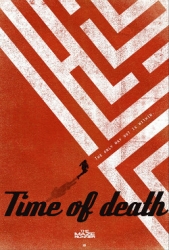Hear No Evil

Hear No Evil читать книгу онлайн
From Publishers Weekly
Miami lawyer Jack Swyteck is in for one hell of a roller coaster ride in this lapel-grabbing thriller, Grippando's ninth (Last to Die; etc.). Lindsey Hart, about to be charged with the murder of her husband, Marine Capt. Oscar Pintado, comes to Jack because she believes he is her last, best chance-and also the biological father of her adopted son. Stunned, Jack thinks he recognizes the picture of the 10-year-old she shows him ("he knew those dark eyes, that Roman nose"), but he still isn't sure whether he should take the case. What if he doesn't and she's innocent? She could be convicted. But if she's guilty-and he takes the case and wins it-he doesn't want to see the child raised by a murderer. Thanks to Grippando's devious mind, that's just the beginning. Plot twists, doled out with perfect timing, include the story of the murder victim, who's the son of a rich and powerful anti-Castro activist; the prosecutor's connection to Swyteck's family; and the testimony of the defense's prime witness, who is a private in Castro's army-the murder took place on the U.S. military base at Guant?namo Bay, Cuba. It's manipulative Lindsey, however, who proves to be the book's most unpredictable element. This character-driven, intricately plotted thriller will keep readers guessing up to the end.
Внимание! Книга может содержать контент только для совершеннолетних. Для несовершеннолетних чтение данного контента СТРОГО ЗАПРЕЩЕНО! Если в книге присутствует наличие пропаганды ЛГБТ и другого, запрещенного контента - просьба написать на почту [email protected] для удаления материала
“Let’s get some bread,” said Jack.
“I think we should just go home,” said Abuela.
He could see the pain in her expression, but he wasn’t ready to retreat just yet. He kissed her on the forehead and said, “You wait here. I’ll get the bread and take the dirty looks with me.”
He walked to the end of the aisle and ducked beneath a sign that pointed the way to PAN CALIENTE. It was a back area separated from the main store by thick, clear plastic strips that hung in the doorway and kept the heat on the baking side. A man wearing white overalls and a white T-shirt was loading another tray of dough into the oven.
“Antonio, how are you today?”
Antonio was smiling until he connected the voice with the speaker. He turned back to his work, saying nothing as he slid the tray into the hot oven.
“How about a couple of loaves?” said Jack.
Antonio closed the oven door and put the tray aside. “We’re out.”
Jack could see six loaves sitting atop the oven, which was where the just-baked bread was stored and kept warm. It was one of the secrets that helped such a little store sell eight hundred loaves a week.
“Out, huh?” said Jack.
“Sí, all gone.”
“What about those?” Jack said, pointing toward the oven.
“Those aren’t for you.”
“Antonio!” a man shouted. Jack turned and saw the owner, Kiko, stepping out of the storage room. He said something quickly in Spanish, too quick for Jack to pick up. But the baker promptly moved away. Kiko grabbed two hot loaves and laid them on the table.
“Sorry about that,” he said.
“It’s okay. I should be the one to apologize. Pretty foolish of me to come here in the middle of a trial like this one.”
Kiko shrugged, as if he couldn’t completely disagree. “It’s an older clientele here, Jack. First generation mostly. Everyone here had their home stolen from them, and most of them know people who ended up in one of Castro’s prisons just because they dared to complain about it. That can make you kind of emotional.”
“I understand that. I’m not trying to stick my finger in anybody’s eye. I’m just…”
“Doing your job?”
Jack looked away. It was the truth, but somehow it didn’t sound like enough. “I don’t know what the hell I’m doing anymore.”
Kiko bagged the long loaves and handed them to Jack. “I meant to tell you, I enjoyed that article in yesterday’s paper about you.”
To mark the end of the first week of trial, the Tribune had run a feature story on the three main lawyers in the Guantánamo murder case-Jack and Sofia for the defense, and Hector Torres for the prosecution. It noted the Cuban roots of all three lawyers, with special emphasis on Jack, who was known by most people only as the son of a gringo former governor.
“Not too bad, was it?” said Jack. “They actually got everything right for once.”
“Not everything,” said Kiko, his expression turning serious.
“Is there something I should know?” said Jack.
“A lot of gossip passes through this store, but I happened to hear something this week that I thought I should pass along. It’s about your mother.”
“What?”
His voice lowered, as if he were uncomfortable with what he was about to say. “I don’t speak to your abuela about her daughter and Bejucal. Her friends have warned me that it’s just something you don’t speak to her about.”
“Her friends are right,” said Jack. He didn’t bother with the specifics.
“Anyway, one of my customers-El Pidio, we call him-he’s a good guy, been coming here for years. He’s also from Bejucal. I don’t think your grandmother knew him, but apparently he knew your mother.”
“Really? Did he say something about her?”
“Well, that’s why I mentioned the newspaper article. There was a twenty-year-old picture of Hector Torres in there. Page twelve, I think. El Pidio swears that when he saw that picture, he was sure that Hector Torres was once engaged to your mother back in Bejucal. Supposedly she broke it off and came to Miami.”
“He must be mistaken. I’ve been told that my mother was-” Jack paused for the right words, not interested in getting into the details of the pregnancy. “She was seriously involved with a local boy when she left Bejucal. So it couldn’t have been Torres. The article said he was from Havana. And I’m sure my grandmother would have recognized the name and said something if it was Hector Torres.”
“According to El Pidio, the boy’s name wasn’t Hector Torres. It was Jorge Bustón.”
Jack was at a loss for words, partly from hearing the name Bustón for the first time, but partly because he didn’t understand. “That doesn’t make sense. If his name was Jorge Bustón, then how does Hector Torres fit into this?”
“Take this for whatever you think it’s worth, Jack. But based on that picture, my friend says he’d bet his whole life savings that Hector Torres was from Bejucal and was in love with your mother.”
“Wait a minute. Is he saying that Torres is…”
“Sí, sí. Exactamente. Hector Torres is Jorge Bustón. That’s what he thinks.”
Jack suddenly realized he was crushing the loaves of bread. “That can’t be.”
“You’re probably right. I’m sorry. I wasn’t sure if I should say anything to you or not. The article mentions how Hector Torres and your father have been friends for over thirty years, how Torres helped Harry Swyteck get elected governor, all that stuff. I don’t mean to stir anything up.”
“Don’t worry about it. Thanks for passing along the info. And double thanks for the bread.”
Jack started to walk away, but Kiko caught him and slipped a business card into his hand. On the back was a handwritten number.
“El Pidio’s phone number,” said Kiko. “Like I say, maybe he’s crazy. But maybe he’s not.”
Jack gave a little nod and he stuffed the card in his pocket. Kiko shook his hand firmly, as if to convey that they would speak of this no more. Then Jack left the bakery to track down Abuela.
37
Jack had an appointment at South Miami Hospital.
He knew he had to stay focused on Lindsey and her trial, and this latest information about Jack’s mother and Hector Torres was already distracting enough. Even so, Jack was suddenly feeling the need to tackle at least one of the things that had been gnawing at him about Brian.
It had to do with Brian’s biological mother.
Lindsey had seemed to be holding something over Jack’s head from the day they’d met, her underlying accusation that both Jack and Jessie had decided to give up Brian because of his hearing impairment. Even though Jack hadn’t even known about the baby, let alone his deafness, Lindsey’s words were beginning to feel like a spot on his soul. Maybe it was the reason Jessie had decided not to tell him about the baby. Could she have thought he was so utterly shallow that he wouldn’t have wanted any part of a child who was less than perfect? There was one way to rule out the possibility.
Jack met Jan Wackenhut in the hospital cafeteria on her lunch break. She was the head of the speech pathology and audiology department. Jack had gotten her name through a friend who, of course, couldn’t help adding that Jan was a lively brunette and a terrific dancer. Jack got a lot of that from do-gooders who couldn’t wait for him to rejoin the Married Farts Club, but this was all business. They sat on opposite sides of a little round table in the corner. Jack had an ice tea, and Jan picked at a small wedge of quiche as they spoke.
“When did you say the child was born?” asked Jan.
“Ten years ago.”
She guzzled some ice water, dousing an overnuked piece of broccoli that had apparently set her mouth on fire.
“I can tell you this,” she said. “We do screen infants for hearing loss here at this hospital. But that wasn’t the case at most hospitals in the country ten years ago. In fact, it’s only been in the last two or three years that infant screening has caught on. I read something not long ago that said only twenty percent of newborns were tested as recently as 1999.”






















